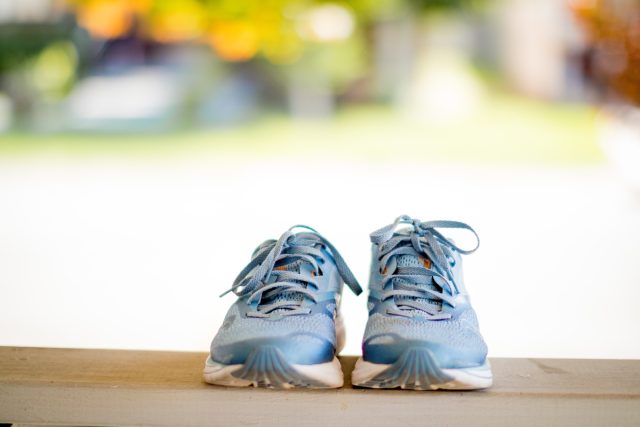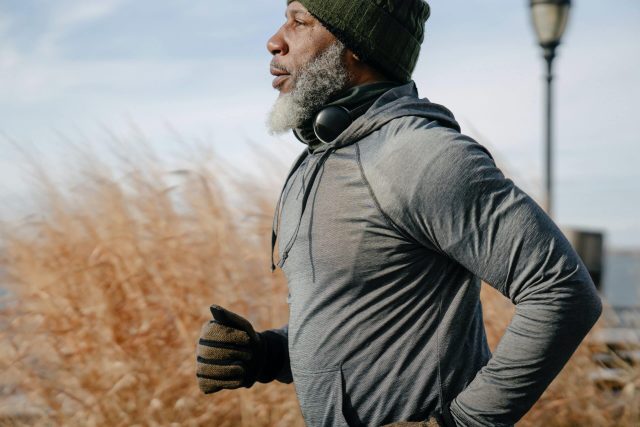Article
5 Ways for Pastors to Practice Self-Care
Self-care isn't contrary to biblical Christian living. Here are a few ways you can view caring for yourself as a means of worshipping God.

Self-Care Misconceptions
There’s a lot of talk today about self-care. In many ways, this topic of conversation is a very good thing. For far too long, especially in Christian circles, self-care hasn’t been pursued because the simple thought of it seemed like a form of indulgent hedonism. To be sure, some of those undercurrents still exist in much of this subject’s discussion. However, among Christian podcasts, blogs, and books, you can easily find helpful, biblical concepts being shared. From my perspective, though, there seems to still be a group of late-adopters holding out on the concept. Chief among them are pastors and church planters.
I ignored my health for much too long in my ministry career. In some seasons, it was because I was too busy with the demands of church planting and didn’t have time to focus on anything else. In other seasons, I convinced myself that the old Christian acronym applied: JOY (Jesus, others, yourself). Putting myself last felt noble, biblical, sacrificial, and deeply spiritual. In these other seasons of my life—if I’m honest—it was a wrong view of self-care that kept me from God’s desire for me.
You see, in so many ways, “self-care” is a misnomer. We can explain away the need to pursue it because we believe that at its core, self-care is deeply self-focused, self-centered, and self-satisfying. However, this idea couldn’t be further from the truth.
Self-Care as Stewardship
Self-care is stewardship. God gave us our bodies and calls us to offer ourselves back to Him as living sacrifices (Romans 12:1). Discipleship is offering those bodies back to Him day after day. What God gives to us, we give back to Him, which He then gives back to us to steward. Self-care, then, is the process of caring for something that belongs to God (1 Corinthians 6:19) so that it can be used for God to its maximum potential (1 Corinthians 9:27). Once we see this issue rightly, understanding that it has benefit for this present life (1 Timothy 4:8), we should see no issue in stepping into self-care. Well, except for the question that stops most people in their tracks: How?
Unless you are a fitness professional or have played organized sports that require training into your early adult years, self-care as physical stewardship probably feels like trying to learn a foreign language. It’s confusing and frustrating, and you’re not quite sure where to get started. As a certified personal trainer who has worked with dozens of people in ministry, I’d like to offer a little direction to help you on your way.
In the fitness world, there are what have often been referred to as “the five factors of fitness.” These are five areas of self-care, and if you pay attention to them on a daily basis, you will be taking steps in the right direction to steward your body for God’s glory.
1. Nutrition
At the foundation of self-care is nutrition. God made food to primarily be fuel for our bodies. Within healthy foods, we find all the macronutrients (proteins, carbohydrates, and fats) and micronutrients (vitamins and minerals) that our bodies need to pursue or maintain a standard level of health.
You can’t outwork a bad diet. So, start here. Eat a wide variety of healthy foods.
2. Hydration
We’ve all heard that our bodies are 60-70% water. What that means is that our bodies need water to function properly. Proper hydration is like oil to a car. It keeps us cool and clean, while at the same time keeping everything moving properly inside. The average adult lives much of their life at a moderate level of dehydration. So many ailments including headaches, digestive issues, and overeating can be tied to not drinking enough water.
With each new day, try to consume at least one ounce of water for every two pounds of body weight.
3. Exercise
God made our bodies to move. Our bones, muscles, ligaments, and tendons depend on the movement of our bodies to stay strong and last us well into our old age. However, many of our professions and lifestyles don’t include the kind of movement necessary to keep us strong. That’s where exercise comes in. I like to think of exercise as training. It isn’t punishment for what we have already done (like eating too much), but preparation for what we want to do (like walk, sit, stand, and lift things without pain or loss of range of motion). Many people call this functional fitness.
Unless you already have a modality of exercise that you enjoy, I’d encourage you to check out some form of functional fitness. This process of training your body is meant to keep you active and strong for the rest of your life.
4. Recovery
We are finite beings. God made us to be dependent on Him. He made us to work, but He also made us to rest. God not only built this into our 24-hour days in which we spend part of the day up and active and part of the day asleep, but God even built this rhythm into the seasons of the calendar and the way that crops grow in soil. Our bodies need times of fallow. We might not realize it, but it’s during our times of recovery that our biggest and best growth happens. It happens when we sleep. It happens when we stretch. It happens when take a week of vacation. It happens when we feast after a season of fasting (literally and figuratively).
So, my best advice: 8-6-4. Get eight hours of sleep per night, work out no more than six days per week, and stretch your body at least four minutes every day.
5. Stress
I still remember when I learned that stress doesn’t have to be bad. Stress, by definition, can simply be our bodies’ and minds’ responses to external stimuli. Another way of thinking about stress is relationships. Our bodies live in relationship to the outside world. Our minds live in relationship to our thoughts and ideas, as well as in relationship with one another because we live in relationship with other people. All of this causes us an often immeasurable amount of stress every single day. Therefore, dealing with stress has two major components: how we respond to it and how we manage the amount of it.
While we could definitely benefit from much more discussion on this topic, here are two quick tips for self-care in the area of stress. First, find a healthy—as opposed to unhealthy—way to respond to the inevitable stresses of life. (For me, that’s working out. For you, it might be resting in a quiet room. Either way, find something that works for you.) Second, sometimes self-care requires that we find ways to manage or minimize the number of stressors in our lives. (For example, I can’t study at coffee shops because the amount of noise overloads my senses.) Remember that not all stress is inevitable. Self-care might mean finding ways to minimize something or even trying to cut it out of your life completely.
Self-Care as Worship
Ministry leader, God wants you to thrive. In fact, He made you to. Self-care is stewardship, and as Romans 12 tells us, stewardship is worship. So, worship the Lord well with all your heart, mind, soul, and strength.




